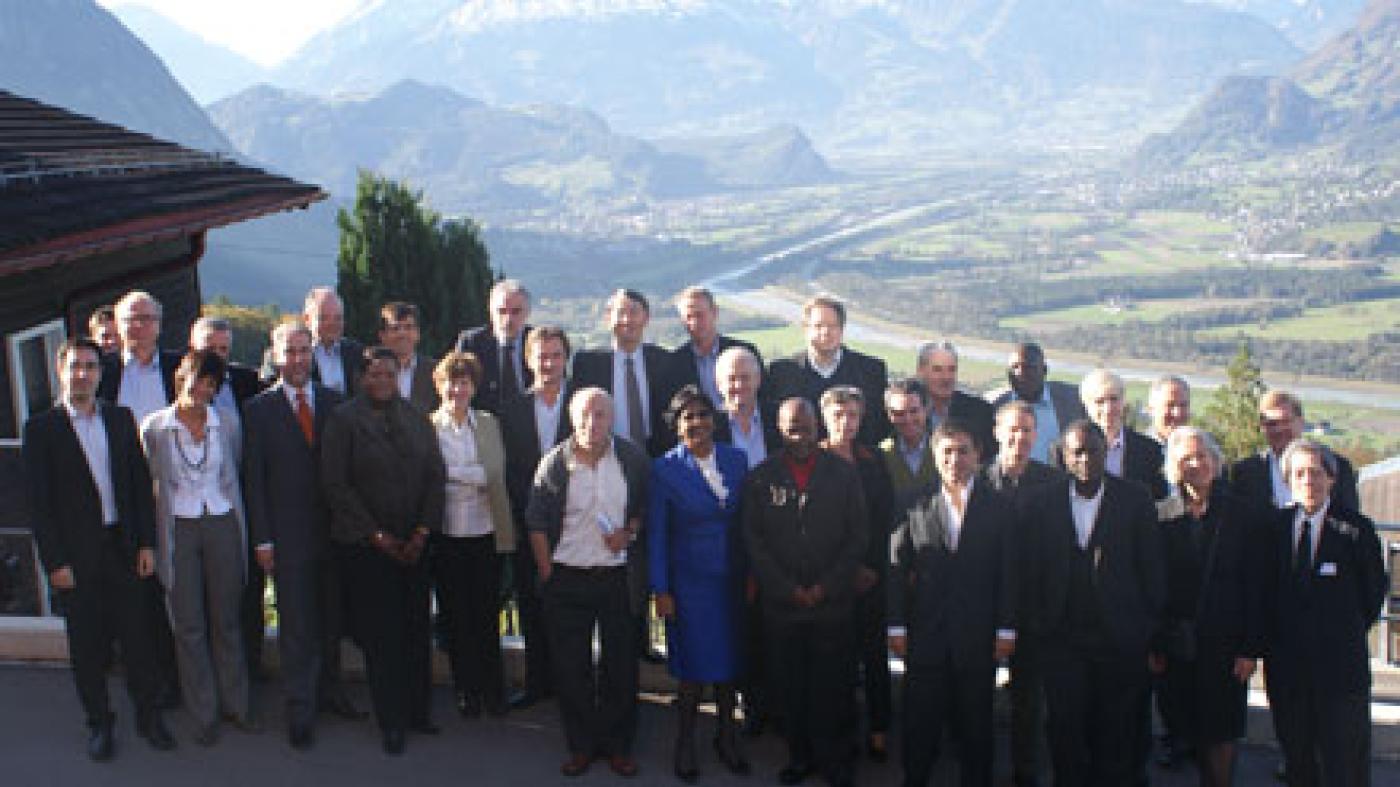
Triesenberg, Liechtenstein
From 16 to 18 October 2011, a group of three dozen senior policy-makers participated in a retreat on the future of the International Criminal Court organized in Triesenberg, by the Government of Liechtenstein with the support of the Liechtenstein Institute on Self-Determination at Princeton University.
The participants at the retreat, which was held under Chatham House rules, considered the major political challenges to be faced by the Court and its Assembly of States Parties in the coming years: main challenges for the Assembly; implementation of the Rome Statute and Cooperation with the Court’s requests; role of the Court in the international system; and promoting the universality of the Rome Statute.
In his welcoming remarks to the participants, H.S.H. Hereditary Prince Alois von und zu Liechtenstein stressed that the Principality’s commitment to support the Rome Statute system, evidenced in particular by the key role played by Ambassador Christian Wenaweser over several years, would continue unabated; he further recalled the importance for small States and those without armed forces of relying on the rule of law, of which the Court was a vital component.
The Foreign Minister of Liechtenstein, H.E. Aurelia Frick, noted that in addition to challenges there were recent developments, such as the Arab Spring, which offered opportunities that could be seized, such as expanding the number of States Parties. She highlighted that steadfast support for the Rome Statute system would continue to be needed, including at the political level; in this connection she called for the establishment of a ministerial network of support for the Court.
Participants in the retreat included current and former representatives of the Assembly, delegates, elected and senior officials of the Court, representatives of the United Nations system, academia and civil society.
The President of the Assembly, Ambassador Christian Wenaweser, highlighted the value of the informal exchange of views on issues that will weigh heavily on the Rome Statute system as it enters a period of dynamic changes in the coming year, with the election of a new Prosecutor and six judges in the midst of the conclusion of the Court’s first trials.
The outcome of the retreat would be reflected in a forthcoming informal summary which would be available on the website of the Court (http://www.icc-cpi.int), under the section of the Assembly.
Additional information
Liechtenstein Press release
Liechtensteinische Landesverwaltung
Volksblatt video
Volksblatt photos
Volksblatt article
Vaterland teaser
For further information on the Assembly of States Parties, please e-mail to [email protected].